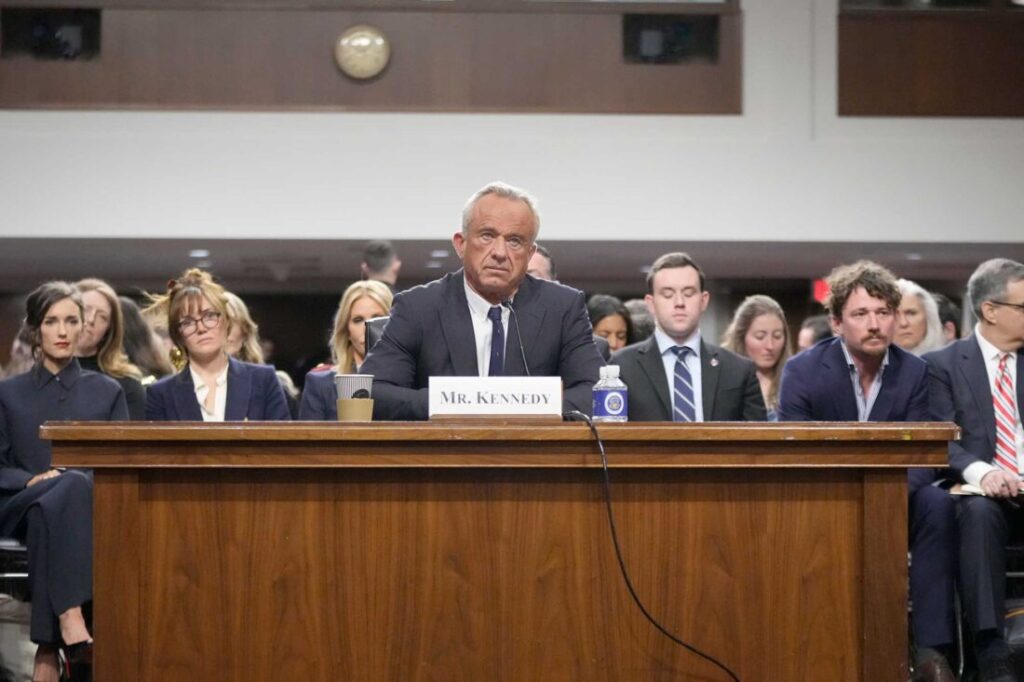In his first grilling before the Senate Finance Committee, Robert F. Kennedy Jr., President Trump’s nominee for Secretary of the U.S. Department of Health and Human Services (HHS), found himself on the defensive, particularly on his stance on Medicaid, Medicare, and nursing home staffing regulations. Kennedy’s responses and views revealed gaps in his understanding of key healthcare programs, which could have significant implications for nursing homes and seniors across the nation.
Nursing Home Staffing Mandate: A “Disaster” for Rural America
One of the most contentious topics during the hearing was the Biden administration’s new nursing home staffing mandate, which is scheduled to take effect in 2026. The rule, requiring that nursing homes provide 24-hour staffing by medical professionals, has drawn significant backlash from rural senators who argue that it will disproportionately impact facilities in less populated areas. Kennedy, who has not yet made a definitive stance on whether he would rescind or revise the rule, described it as a “disaster” for rural states.
“This is a well-intentioned rule,” Kennedy told the committee, “but as many rural senators have pointed out, it will result in closures of nursing homes. Some areas simply do not have the personnel or the economic resources to comply with these staffing requirements.”
Kennedy’s comments echo ongoing concerns within the nursing home industry. Many providers worry that the mandate could lead to the displacement of residents, often moving elderly individuals far from their families. A 2024 study found that proximity to family members is a critical factor in ensuring high-quality care for nursing home residents, emphasizing that any changes to staffing requirements should consider the social and emotional impact on residents and their families.
Medicaid: A System in Need of Reform, Not Cuts
Kennedy’s tenure as HHS secretary would involve oversight of Medicaid, a program critical to millions of Americans, particularly those in long-term care. Throughout the hearing, Kennedy struggled to articulate a clear vision for Medicaid reform. When pressed on the issue, he referred to Medicaid as a “fully federal insurance program,” overlooking its significant state-level involvement and funding, which is essential to understanding its structure and challenges.
Senator Ron Wyden (D-OR) did not mince words, criticizing Kennedy’s lack of experience with Medicaid and warning that proposed cuts to the program would result in catastrophic consequences for seniors and vulnerable populations. “Cuts to Medicaid of this magnitude will jack up health insurance costs, shutter nursing homes, and deprive millions of Americans with disabilities of essential care,” Wyden argued.
Kennedy did not go as far as supporting drastic cuts, but his comments align with broader Republican efforts to scale back Medicaid expansion. As discussions about healthcare funding continue, the future of Medicaid—and its impact on nursing home care—remains uncertain.
Workforce Challenges and Value-Based Care
Kennedy’s responses to workforce challenges also raised eyebrows. He acknowledged the critical role of healthcare professionals but did not provide a clear strategy for addressing the staffing shortages that plague both urban and rural nursing homes. Workforce issues in long-term care are a persistent challenge, with a 2023 survey finding that 73% of nursing homes report struggling to hire enough staff to meet quality care standards.
On the topic of value-based care, Kennedy spoke passionately about reducing healthcare costs and improving service delivery, but he did not offer concrete solutions for incentivizing the adoption of value-based models in the nursing home sector.
Looking Ahead
Kennedy’s confirmation hearing revealed both opportunities and challenges in his potential leadership of HHS. His views on Medicaid and nursing home staffing could shape the future of long-term care policy, particularly in rural areas where staffing shortages and economic constraints already pose significant challenges. However, Kennedy’s apparent lack of detailed knowledge about key healthcare programs and their intersection with nursing home operations could complicate his efforts to address the industry’s most pressing issues.
With a second hearing scheduled before the Senate Health, Education, Labor & Pensions Committee, Kennedy will need to clarify his position on these critical issues to gain the full confidence of Congress and nursing home operators alike.
In the coming days, all eyes will be on whether Kennedy can provide the leadership necessary to tackle the challenges facing Medicaid, Medicare, and nursing homes across the country.


